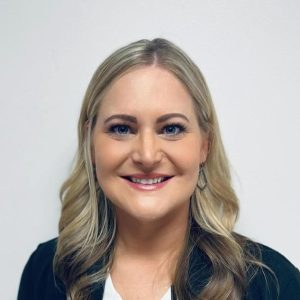 At Compassus, every team member brings a story, a purpose and a personal “why” that inspires their work. This month, we’re proud to highlight Sara Tennison, a compassionate nurse and Hospice Care Transition Coordinator (CTC) in Vinita, OK, whose journey into hospice care was born from the most challenging season of her career.
At Compassus, every team member brings a story, a purpose and a personal “why” that inspires their work. This month, we’re proud to highlight Sara Tennison, a compassionate nurse and Hospice Care Transition Coordinator (CTC) in Vinita, OK, whose journey into hospice care was born from the most challenging season of her career.
After spending a year on the COVID floor overwhelmed by grief and the limits of acute care, Sara found a new path—a calling that allowed her to bring peace, comfort and purpose to her patients. Here’s her story, in her own words.
Q: What brought you to hospice care and to Compassus?
Sara: I was working at a hospital on the COVID floor and saw more death in a year than I had in the previous 15 years of my nursing career. I watched people suffer, begging me to help them, and I felt helpless and defeated every day. It was taking a toll on my mental health and my family. I prayed for guidance. When I was approached about a hospice job with Compassus, I felt like it was the answer to my prayers. I realized that with hospice, I could help patients through the dying process and make them more comfortable rather than watching them suffer. People die whether we are there or not, so why not be there to help them through it? I also loved that Compassus’ values aligned with my own. It felt like that’s where I was called to be.
Q: What keeps you motivated in this work?
Sara: Seeing the relief on patients’ and families’ faces when you explain how hospice can help them—and hearing what a difference our team has made in their lives—is everything. I also really enjoy helping our hospital partners and making things easier for them. I know firsthand how stressful that environment can be, so it means a lot to be a support.
Q: Is there a patient story that has stayed with you?
Sara: I had a patient come into the ER with metastatic disease. Her mom and sisters were her caregivers, and they were completely overwhelmed. I was able to get the patient transferred to a local hospice house. Months later, at our remembrance service, her mom saw me. She hugged me, cried and thanked me for everything I did for them. As a CTC, we don’t often get to spend much time with patients and families like the clinical team does, so when they remember you it really reminds you how meaningful our role is.
Q: What does your day-to-day look like as a CTC?
Sara: I listen to patients and families to understand their concerns and needs, so I can make sure they have the right tools to be taken care of. I collaborate with the hospital team and the hospice team to coordinate and arrange a smooth transition home and onto hospice services.
Q: What does “Care for who I am” mean to you?
Sara: It means caring for the person—not just the disease or symptoms. Everyone is different, with their own needs and preferences. It’s our job to listen to what matters to them. Getting to know someone as a person, beyond their medical history, is what brings true dignity to the care we provide.



